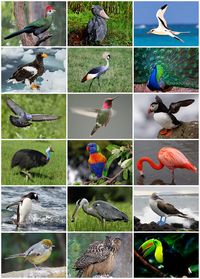
Long‐term variation in environmental conditions influences host–parasite fitness
Sign Up to like & getrecommendations! Published in 2019 at "Ecology and Evolution"
DOI: 10.1002/ece3.5321
Abstract: Abstract Long‐term data on host and parasite fitness are important for predicting how host–parasite interactions will be altered in an era of global change. Here, we use data collected from 1997 to 2013 to explore… read more here.
Keywords: host parasite; parasite fitness; fledging success; long term ... See more keywords

Extreme events are more likely to affect the breeding success of lesser kestrels than average climate change
Sign Up to like & getrecommendations! Published in 2020 at "Scientific Reports"
DOI: 10.1038/s41598-020-64087-0
Abstract: Climate change is predicted to severely impact interactions between prey, predators and habitats. In Southern Europe, within the Mediterranean climate, herbaceous vegetation achieves its maximum growth in middle spring followed by a three-month dry summer,… read more here.
Keywords: lesser kestrels; success; climate change; extreme events ... See more keywords

Maternal immunization increases nestling energy expenditure, immune function, and fledging success in a passerine bird
Sign Up to like & getrecommendations! Published in 2018 at "Biology Open"
DOI: 10.1242/bio.028803
Abstract: ABSTRACT Female birds transfer maternally derived antibodies (matAb) to their nestlings, via the egg yolk. These antibodies are thought to provide passive protection, and allow nestlings to avoid the costs associated with mounting an innate… read more here.
Keywords: immunized mothers; function fledging; function; immune function ... See more keywords